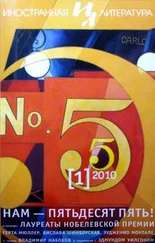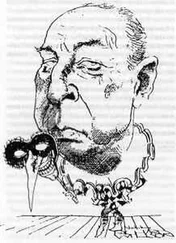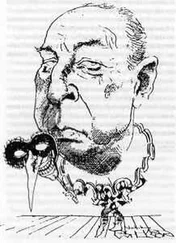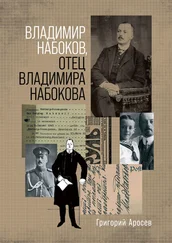Владимир Набоков - Vladimir Nabokov Pnin
Здесь есть возможность читать онлайн «Владимир Набоков - Vladimir Nabokov Pnin» весь текст электронной книги совершенно бесплатно (целиком полную версию без сокращений). В некоторых случаях можно слушать аудио, скачать через торрент в формате fb2 и присутствует краткое содержание. Жанр: Классическая проза, на английском языке. Описание произведения, (предисловие) а так же отзывы посетителей доступны на портале библиотеки ЛибКат.
- Название:Vladimir Nabokov Pnin
- Автор:
- Жанр:
- Год:неизвестен
- ISBN:нет данных
- Рейтинг книги:4 / 5. Голосов: 2
-
Избранное:Добавить в избранное
- Отзывы:
-
Ваша оценка:
- 80
- 1
- 2
- 3
- 4
- 5
Vladimir Nabokov Pnin: краткое содержание, описание и аннотация
Предлагаем к чтению аннотацию, описание, краткое содержание или предисловие (зависит от того, что написал сам автор книги «Vladimir Nabokov Pnin»). Если вы не нашли необходимую информацию о книге — напишите в комментариях, мы постараемся отыскать её.
Vladimir Nabokov Pnin — читать онлайн бесплатно полную книгу (весь текст) целиком
Ниже представлен текст книги, разбитый по страницам. Система сохранения места последней прочитанной страницы, позволяет с удобством читать онлайн бесплатно книгу «Vladimir Nabokov Pnin», без необходимости каждый раз заново искать на чём Вы остановились. Поставьте закладку, и сможете в любой момент перейти на страницу, на которой закончили чтение.
Интервал:
Закладка:
'Tshay gotoff (tea's ready),' called Susan from the porch in her funny functional Russian. 'Timofey, Rozochka! Tshay!'
Pnin told Madam Shpolyanski he would follow her in a minute, and after she had gone he continued to sit in the first dusk of the arbour, his hands clasped on the croquet mallet he still held.
Two kerosene lamps cosily illuminated the porch of the country house. Dr Pavel Antonovich Pnin, Timofey's father, an eye specialist, and Dr Yakov Grigorievich Belochkin, Mira's father, a paediatrician, could not be torn away from their chess game in a corner of the veranda, so Madam Belochkin had the maid serve them there--on a special small Japanese table, near the one they were playing at--their glasses of tea in silver holders, the curd and whey with black bread, the Garden Strawberries, zemlyanika, and the other cultivated species, klubnika (Hautbois or Green Strawberries), and the radiant golden jams, and the various biscuits, wafers, pretzels, zwiebacks--instead of calling the two engrossed doctors to the main table at the other end of the porch, where sat the rest of the family and guests, some clear, some grading into a luminous mist.
Dr Belochkin's blind hand took a pretzel; Dr Pnin's seeing hand took a rook. Dr Belochkin munched and stared at the hole in his ranks; Dr Pnin dipped an abstract zwieback into the hole of his tea.
The country house that the Belochkins rented that summer was in the same Baltic resort near which the widow of General N--let a summer cottage to the Pnins on the confines of her vast estate, marshy and rugged, with dark woods hemming in a desolate manor. Timofey Pnin was again the clumsy, shy, obstinate, eighteen-year-old boy, waiting in the dark for Mira--and despite the fact that logical thought put electric bulbs into the kerosene lamps and reshuffled the people, turning them into ageing йmigrйs and securely, hopelessly, forever wire-netting the lighted porch, my poor Pnin, with hallucinatory sharpness, imagined Mira slipping out of there into the garden and coming toward him among tall tobacco flowers whose dull white mingled in the dark with that of her frock. This feeling coincided somehow with the sense of diffusion and dilation within his chest. Gently he laid his mallet aside and, to dissipate the anguish, started walking away from the house, through the silent pine grove. From a car which was parked near the garden tool house and which contained presumably at least two of his fellow guests' children, there issued a steady trickle of radio music.
'Jazz, jazz, they always must have their jazz, those youngsters,' muttered Pnin to himself, and turned into the path that led to the forest and river. He remembered the fads of his and Mira's youth, the amateur theatricals, the gipsy ballads, the passion she had for photography. Where were they now, those artistic snapshots she used to take--pets, clouds, flowers, an April glade with shadows of birches on wet-sugar snow, soldiers posturing on the roof of a box-car, a sunset skyline, a hand holding a book? He remembered the last day they had met, on the Neva embankment in Petrograd, and the tears, and the stars, and the warm rose-red silk lining of her karakul muff. The Civil War of 1918-22 separated them: history broke their engagement. Timofey wandered southward, to join briefly the ranks of Denikin's army, while Mira's family escaped from the Bolsheviks to Sweden and then settled down in Germany, where eventually she married a fur dealer of Russian extraction. Sometime in the early thirties, Pnin, by then married too, accompanied his wife to Berlin, where she wished to attend a congress of psychotherapists, and one night, at a Russian restaurant on the Kurfьrstendamm, he saw Mira again. They exchanged a few words, she smiled at him in the remembered fashion, from under her dark brows, with that bashful slyness of hers; and the contour of her prominent cheekbones, and the elongated eyes, and the slenderness of arm and ankle were unchanged, were immortal, and then she joined her husband who was getting his overcoat at the cloakroom, and that was all--but the pang of tenderness remained, akin to the vibrating outline of verses you know you know but cannot recall.
What chatty Madam Shpolyanski mentioned had conjured up Mira's image with unusual force. This was disturbing. Only in the detachment of an incurable complaint, in the sanity of near death, could one cope with this for a moment. In order to exist rationally, Pnin had taught himself, during the last ten years, never to remember Mira Belochkin--not because, in itself, the evocation of a youthful love affair, banal and brief, threatened his peace of mind (alas, recollections of his marriage to Liza were imperious enough to crowd out any former romance), but because, if one were quite sincere with oneself, no conscience, and hence no consciousness, could be expected to subsist in a world where such things as Mira's death were possible. One had to forget--because one could not live with the thought that this graceful, fragile, tender young woman with those eyes, that smile, those gardens and snows in the background, had been brought in a cattle car to an extermination camp and killed by an injection of phenol into the heart, into the gentle heart one had heard beating under one's lips in the dusk of the past. And since the exact form of her death had not been recorded, Mira kept dying a great number of deaths in one's mind, and undergoing a great number of resurrections, only to die again and again, led away by a trained nurse, inoculated with filth, tetanus bacilli, broken glass, gassed in a sham shower-bath with prussic acid, burned alive in a pit on a gasoline-soaked pile of beechwood. According to the investigator Pnin had happened to talk to in Washington, the only certain thing was that being too weak to work (though still smiling, still able to help other Jewish women), she was selected to die and was cremated only a few days after her arrival in Buchenwald, in the beautifully wooded Grosser Ettersberg, as the region is resoundingly called. It is an hour's stroll from Weimar, where walked Goethe, Herder, Schiller, Wieland, the inimitable Kotzebue and others. 'Aber warum--but why--' Dr Hagen, the gentlest of souls alive, would wail, 'why had one to put that horrid camp so near!' for indeed, it was near--only five miles from the cultural heart of Germany--'that nation of universities,' as the President of Waindell College, renowned for his use of the mot juste, had so elegantly phrased it when reviewing the European situation in a recent Commencement speech, along with the compliment he paid another torture house, 'Russia--the country of Tolstoy, Stanislavski, Raskolnikov, and other great and good men.'
Pnin slowly walked under the solemn pines. The sky was dying.' He did not believe in an autocratic God. He did believe, dimly, in a democracy of ghosts. The souls of the dead, perhaps, formed committees, and these, in continuous session, attended to the destinies of the quick.
The mosquitoes were getting bothersome. Time for tea. Time for a game of chess with Chateau. That strange spasm was over, one could breathe again. On the distant crest of the knoll, at the exact spot where Gramineev's easel had stood a few hours before, two dark figures in profile were silhouetted against the ember-red sky. They stood there closely, facing each other. One could not make out from the road whether it was the Poroshin girl and her beau, or Nina Bolotov and young Poroshin, or merely an emblematic couple placed with easy art on the last page of Pnin's fading day.
Chapter Six
1
The 1954 Fall Term had begun. Again the marble neck of a homely Venus in the vestibule of Humanities Hall received the vermilion imprint, in applied lipstick, of a mimicked kiss. Again the Waindell Recorder discussed the Parking Problem. Again in the margins of library books earnest freshmen inscribed such helpful glosses as 'Description of Nature', or 'Irony'; and in a pretty edition of Mallarmй's poems an especially able scholiast had already underlined in violet ink the difficult word oiseaux and scrawled above it 'birds'. Again autumn gales plastered dead leaves against one side of the latticed gallery leading from Humanities to Frieze Hall. Again, on serene afternoons, huge amber-brown Monarch butterflies flapped over asphalt and lawn as they lazily drifted south, their incompletely retracted black legs hanging rather low beneath their polka-dotted bodies.
Читать дальшеИнтервал:
Закладка:
Похожие книги на «Vladimir Nabokov Pnin»
Представляем Вашему вниманию похожие книги на «Vladimir Nabokov Pnin» списком для выбора. Мы отобрали схожую по названию и смыслу литературу в надежде предоставить читателям больше вариантов отыскать новые, интересные, ещё непрочитанные произведения.
Обсуждение, отзывы о книге «Vladimir Nabokov Pnin» и просто собственные мнения читателей. Оставьте ваши комментарии, напишите, что Вы думаете о произведении, его смысле или главных героях. Укажите что конкретно понравилось, а что нет, и почему Вы так считаете.










